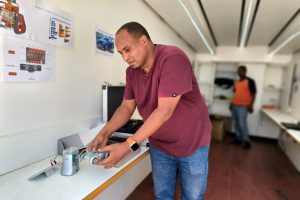
ADDIS ABABA – The Oromia State Water and Energy Bureau convened a discussion yesterday with stakeholders and officials regarding the implementation of a new regulatory policy.
The policy includes self-sufficient expenditure guidelines for drinking water and sewerage services.
Bureau Head Engineer Million Bekele stated that the regulatory policy introduces cost recovery mechanisms while improving service quality. “By effectively implementing these strategies and policies, we can ensure the delivery of sufficient and clean water services while enhancing cost recovery capacity,” she said.
The self-sufficient expenditure framework requires institutions to utilize revenue from water sales to expand supply coverage, minimize water wastage, strengthen revenue collection efficiency, build a skilled workforce, and adopt cost-saving technologies.
To ensure the effective implementation of the regulatory policy, Million emphasized the need for awareness-raising forums targeting associations, federations, and the general public. She also highlighted the importance of legal partnerships and the digitization of drinking water and sewerage services.

Bureau Consultant Ambassador Alemayehu Tegenu, for his part, noted that despite external challenges—such as rising costs of materials like pumps and pipes—cost recovery should not come at the expense of affordability. Instead, he urged a focus on efficiency and sustainability. “Water and sewerage service offices at zonal and woreda levels should be financially autonomous,” he added, recommending that essential materials be imported tax-free.
To oversee the implementation of the regulatory policy, a Regulatory Board has been established, comprising the Chief Administrator and Deputy Chief of Oromia State, the Rural Development Cluster, and the Secretary to the Head of the Water and Energy Bureau. Additionally, Inspection Boards will be set up at city and district levels to monitor and enforce compliance.
Furthermore, the involvement of science and technology institutions was highlighted as crucial for the successful execution of the policy. Their participation is expected to drive sectoral transformation through digitization and advanced IT systems.
BY NAOL GIRMA
THE ETHIOPIAN HERALD SATURDAY 29 MARCH 2025





